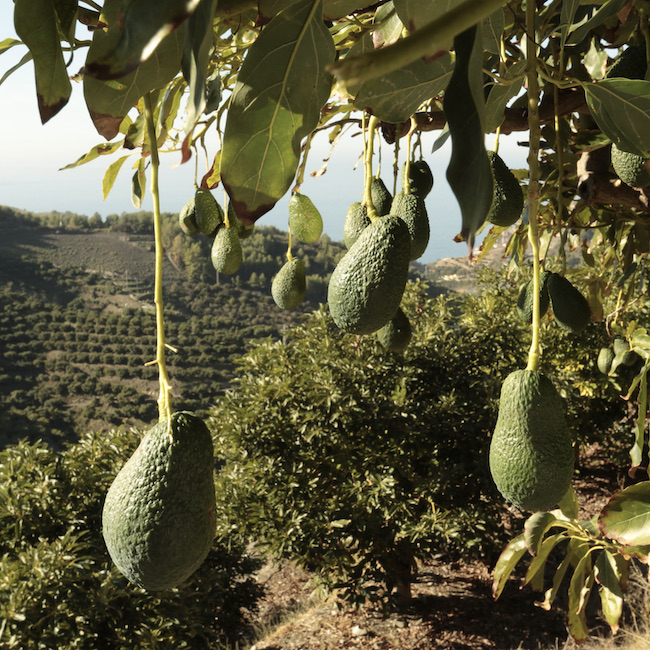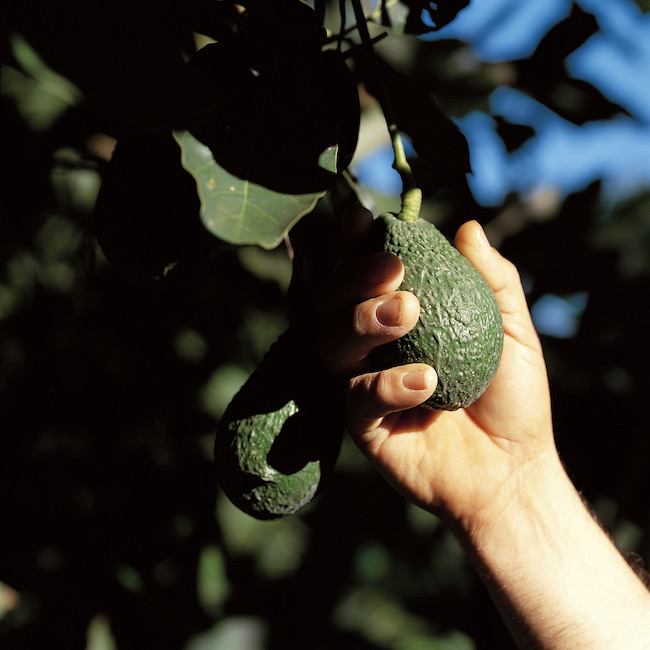by Simon Hunter - @simonhunter
.png.transform/rendition-xs/image_image%20(1).png)
Thanks to its weather, Spain has become the biggest producer in Europe of this fruit with sustainability and excellence as hallmarks

by Simon Hunter - @simonhunter
A source of energy and nutrients; more potassium than a banana; rich in fibre; beneficial to the heart and the circulatory system thanks to natural oils; helpful to digestion; and even an aid to vision. There are a seemingly endless list of benefits to eating avocados, not least their fantastic flavour and texture. No wonder, then, that the tropical fruit is widely known as “green gold”, although this moniker also refers to their value for producers.
In the European Union, the main and practically only producer of the oily fruit is Spain, a country that boasts the ideal conditions for growing the crop. Not only have Spanish farmers rushed to join the global market for avocados, but Spanish consumers have also taken to the fruit as a staple of their diets. Figures suggest Spaniards consume 1.2 kilos of avocados a year.
While avocados are often derided in countries such as the United Kingdom and the United States as a hipster fad, in Spain they are a regular ingredient in salads, on restaurant menus (sometimes even served grilled) and of course in that global favourite, guacamole.

In recent years, producers in Spain have been tempted to switch from crops such as citrus fruits to avocados thanks to their market price. The last season saw production across the country of 115,000 tons, up 16.5% on the previous year according to figures from the Spanish Agriculture Ministry. “Spain has the ideal conditions for growing avocados,” explains Celestino Recatalá, the president of ASOPROA, the Spanish Association of Avocado Producers. “Not in all of the provinces, but in regions such as Valencia and Andalusia they work really well.”
In fact, the crop is spreading from Andalusian provinces such as Granada and Málaga to Cádiz and Huelva, and in the Valencia region they are also grown in Castellón, Valencia and Alicante. On the coasts of Málaga and Granada, for example, there are more than 10,000 hectares of land dedicated to avocado production. “The conditions here include the ideal temperatures,” Celestino continues, “which are not too hot nor too cold – between 2ºC and 27ºC.”
Humidity is also a factor that is important for the growth of avocados, and Spain’s strategic position as a transport hub for the rest of Europe means that there are lower distribution costs compared to other countries – and of course a lower carbon footprint compared to imports from Latin America. The European Union can produce avocados from October to April, while relying on imports from May to November.
“If we want to respect the environment and we are committed to combating climate change, it doesn't make any sense in today’s world for avocados to arrive from the other side of the Earth after a 40-day journey, when in Spain we can produce avocados for consumption,” argues Celestino.
On the subject of the environment, recent press reports in Spain have suggested that the growth of the crop in Spain requires too much of a very precious resource: water. These claims, however, are rejected by the sector and global avocado associations alike. The World Avocado Organization, for example, points to apples and bananas as consuming more water than avocados in proportion to their nutritional value. The latter require around 600 to 700 litres to produce one kilo, according to the WAO.
“Growing avocados doesn’t need more water than any other crop,” argues Celestino. “People don’t know about the practical details of growing avocados and they make comments that don’t reflect reality. That is one of our challenges: to tell consumers that by buying Spanish avocados we meet all of the sustainability requirements and our health guarantees cannot be matched anywhere else.”

In Spain, as in the rest of the world, the main variety of avocado that is produced is Haas, which has a black and often bumpy skin, rich, fatty flesh, is a medium size and easy to peel. But all of the common types, such as Bacon and Fuerte, can also be grown in the country. “We can produce all of the varieties that are produced in the whole world,” explains Celestino.
The sector has recently seen a fall in the price of avocados given an excess of production compared to demand. And producers are also aware that a flood of foreign imports is likely to arrive in the coming years, putting them under further pressure. As such, organisations like Celestino’s are looking to organise to promote their product, both for domestic consumption and in the rest of Europe.

“The challenge we face is to consolidate growth,” explains Celestino. “The Spanish and the European consumer need to realise that the European Commission demands very high standards, which we comply with, that we respect the environment, and produce a sustainable product.” Not to mention, of course, a truly delicious and nutritious one.